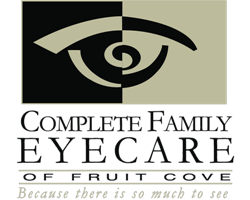Dry Eye Questions and Answers by Dr. Madeline Dau
Q: Is it true that Dry Eye symptoms seem to be more severe in the winter than in the warmer spring and summer months?
A: Due to the decrease in humidity, it’s not abnormal for the eyes to feel additional discomfort during cooler months. People may also notice that if they travel to a drier climate, their eyes feel worse.
Q: When should a person come in to see their optometrist for Dry Eye symptoms and when is it enough to take care of this problem yourself?
A: If symptoms are fairly mild, over the counter (OTC) brands like Refresh and Systane are fine to try first. Other brands may have other active ingredients that actually dry the eyes out, causing patients to use the drops more. If a patient is using an artificial tear more than two or three times per day, they should seek a Dry Eye Evaluation, especially if the artificial tear isn’t relieving symptoms.
Q: What is the examination like to determine whether someone is suffering from Dry Eyes?
A: Dry Eyes can be addressed during a comprehensive exam or a problem focused exam. The physician may utilize a yellow dye called fluorescein to highlight dry patches and desiccated cells across the cornea. Fluorescein is also used to measure tear break up time (TBUT), which is how long it takes for tears to evaporate. Average TBUT should be around 10 seconds, but with how much we rely on electronic devices nowadays, many patients have TBUTs around 2 or 3 seconds.
Q: I have a friend whose eyes are frequently overly watery. That isn't Dry Eye, is it?
A: Oftentimes, it is. If an eye dries out too much, it starts a reflex arc to tear. These reflex tears aren’t the best quality and tend to run down the cheeks.
Q: What are the typical treatments used to help people suffering from Dry Eyes?
A: Treatments depend on the underlying cause. For meibomian gland dysfunction, where there’s an imbalance with tear components, warm compresses and lid scrubs are the best treatment. For patients with dry eye caused by lid issues, addressing the underlying problem is key. You’d be surprised how many people sleep with their eyes slightly open.
Q: Are some people more prone to having Dry Eyes than others?
A: Yes. Some people are predisposed to having more dryness, like if they have Rosacea or autoimmune issues like Sjogren’s or Rheumatoid Arthritis. Others may have dryness caused by their electronic device usage—when we look at a backlit screen, our blink rate drops from about 15 times a minute to 5 times a minute.
Q: Do you have any recommendations for people to help them avoid Dry Eye issues?
A: Short, frequent breaks from electronic devices, increasing water intake, and making sure you’re consuming enough Omega-3 fatty acids can help reduce Dry Eye symptoms.

